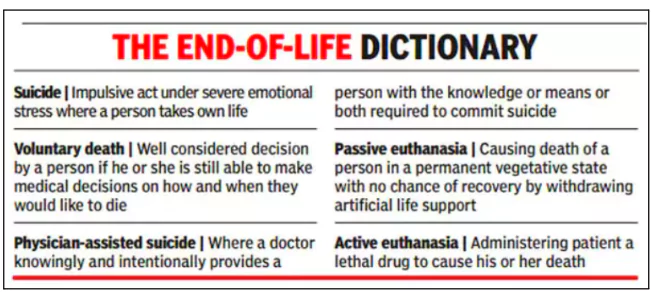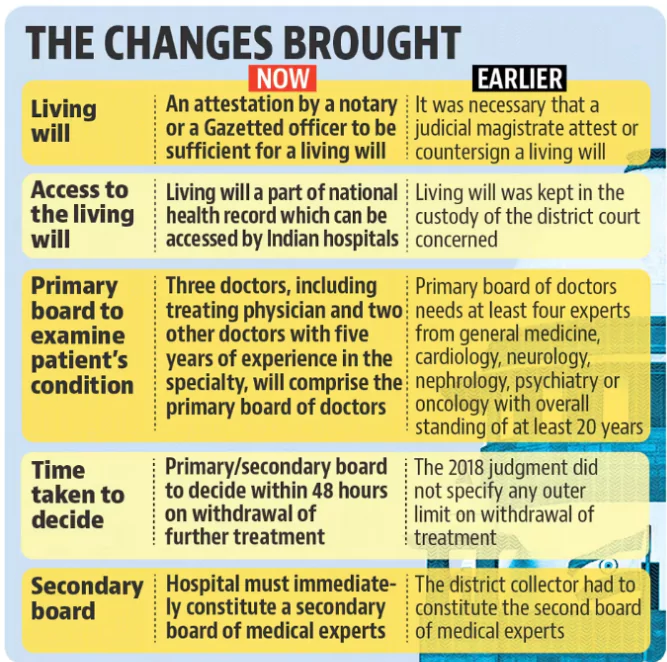![]() 23 Jun 2025
23 Jun 2025

The UK Parliament has recently approved the Assisted Dying Bill, marking a historic shift in the end-of-life rights debate.

| Ethical Dimension | Arguments in Favour | Arguments Against | Theoretical Perspective |
| Autonomy | Respects individual’s right to make decisions about their own body and life. | Autonomy may be compromised by depression, coercion, or social pressure. | Liberalism (J.S. Mill): Personal liberty and choice |
| Human Dignity | Enables a dignified death, free from prolonged suffering and loss of personal agency. | Dignity can be upheld by caring for the vulnerable, not by facilitating death. | Kantian Ethics: Dignity as inherent, not conditional |
| Compassion and Suffering | Compassion demands that we relieve unbearable suffering, even through assisted death. | True compassion involves supporting life and alleviating suffering, not ending life. | Utilitarianism (Bentham, Mill): Minimize suffering |
| Sanctity of Life | Not absolute if life is reduced to constant pain; quality of life matters more. | Life is sacred and must not be intentionally ended, regardless of condition. | Natural Law Theory; Religious Ethics |
| Medical Ethics | Physicians have a duty to relieve suffering (principle of beneficence). | Physicians are bound to heal, not to kill; assisted dying contradicts the Hippocratic Oath. | Principlism: Beneficence vs. Non-maleficence |
| Risk of Misuse | With robust safeguards (second opinions, consent reviews), risks can be minimized. | Vulnerable people (elderly, disabled) may be pressured, directly or indirectly. | Ethics of Care: Emphasizes protecting the vulnerable |
| Possibility of Error | Rare, and patients undergo rigorous medical screening and psychological evaluation. | Misdiagnosis or changes in prognosis could lead to irreversible premature death. | Precautionary Principle: Avoid irreversible harm |
| Role of the State | The state should empower individuals to make moral choices about their own bodies. | The state has a duty to protect life and prevent harm, especially to vulnerable populations. | Social Contract Theory (Hobbes, Locke) |
| Slippery Slope Concern | Legal boundaries (e.g., terminal illness, consent) are clearly defined and enforceable. | Could gradually expand to include non-terminal conditions or non-consenting patients (e.g., infants, dementia). | Deontological Ethics: Focus on intention and limits |
| Alternatives (Palliative Care) | Assisted dying can co-exist with advanced palliative care, giving patients more options. | Investment should be directed toward better palliative care rather than facilitating death. | Virtue Ethics: Focus on compassion and moral responsibility |
India’s Legal Position: Does the Right to Live under Article 21 of the Indian Constitution include the Right to Die too?
| The “Right to Die” concept centers on allowing individuals, especially those with terminal illnesses, to end their life or refuse life-sustaining treatment. |
|---|

<div class="new-fform">
</div>